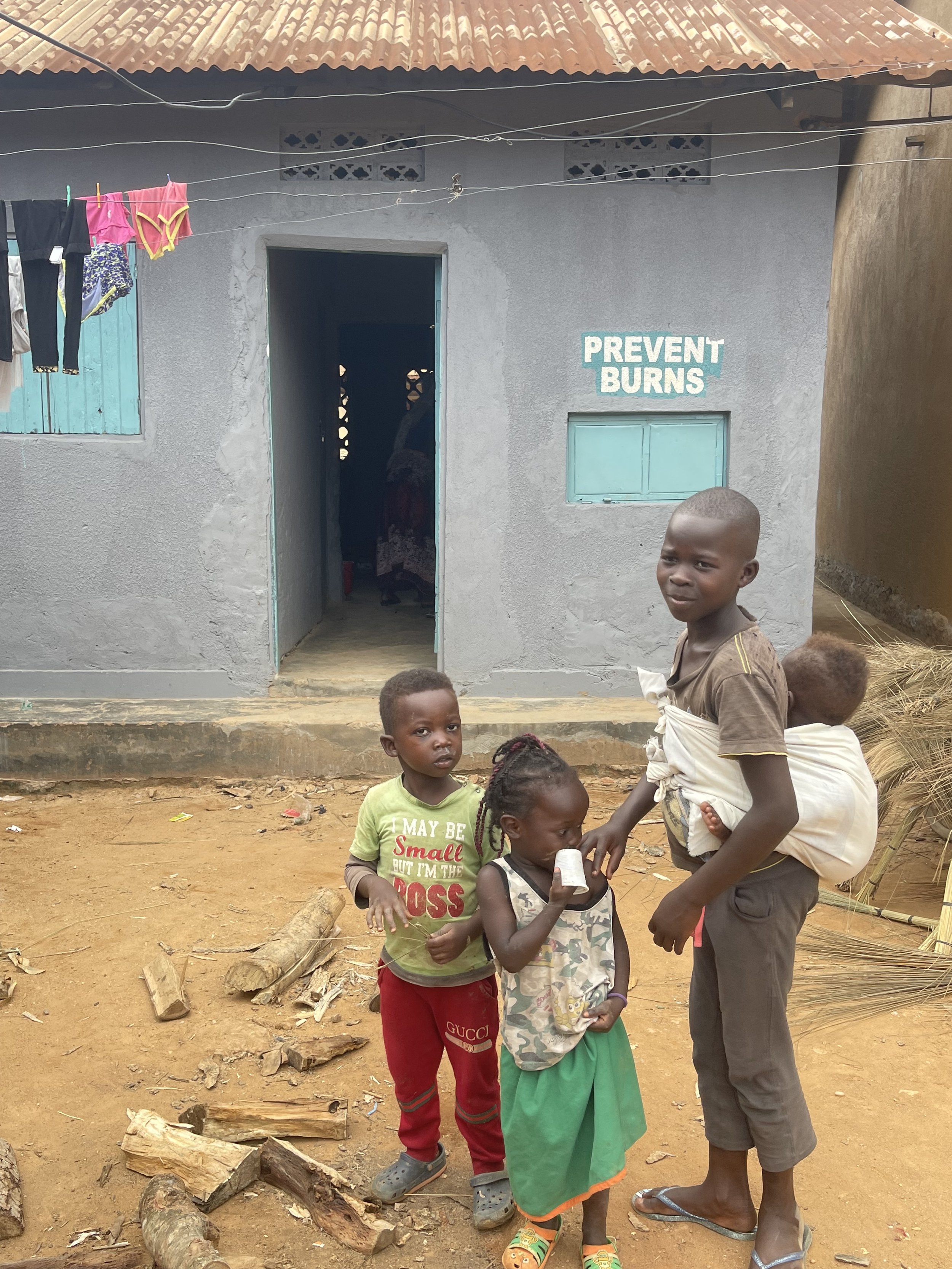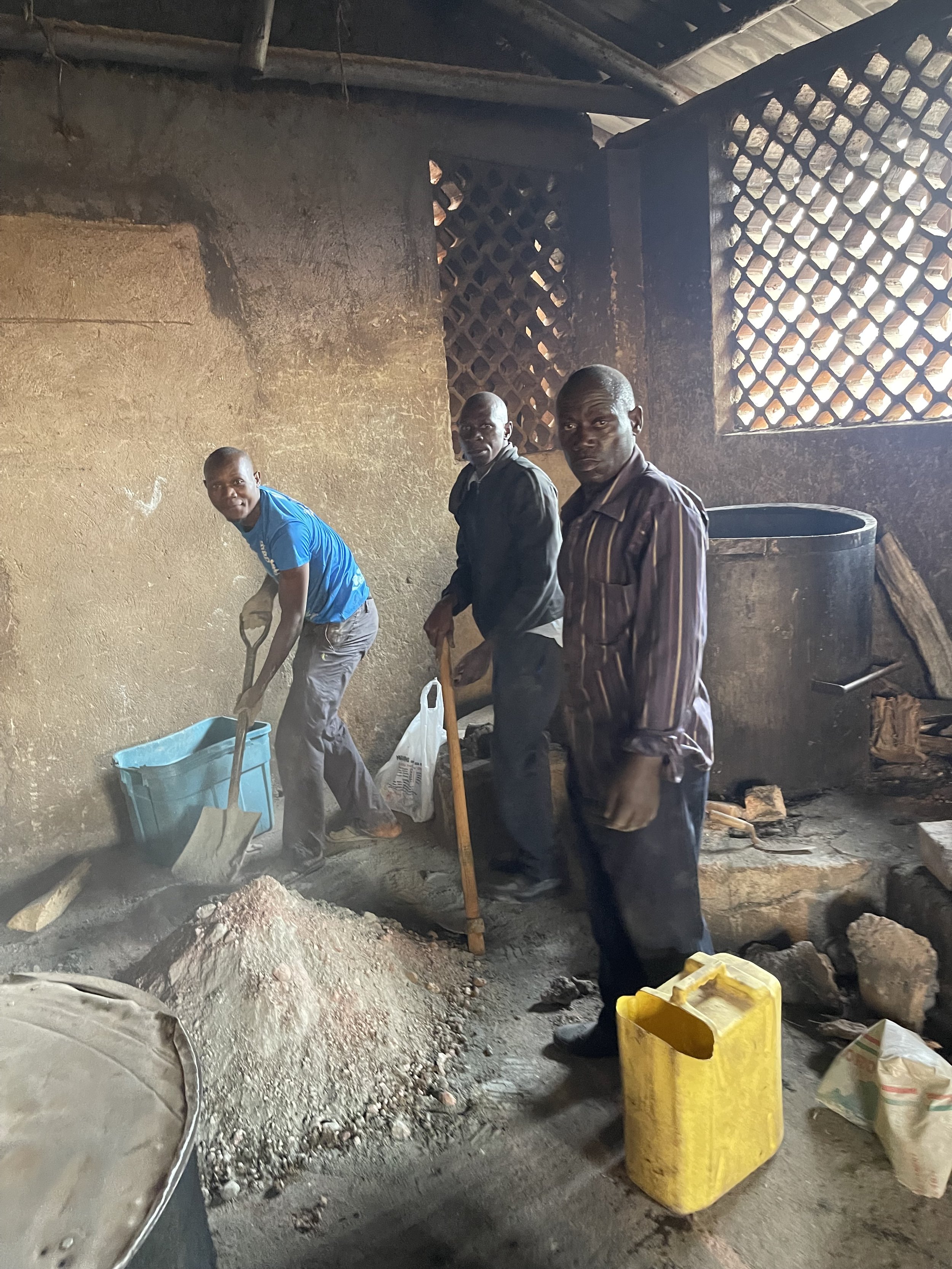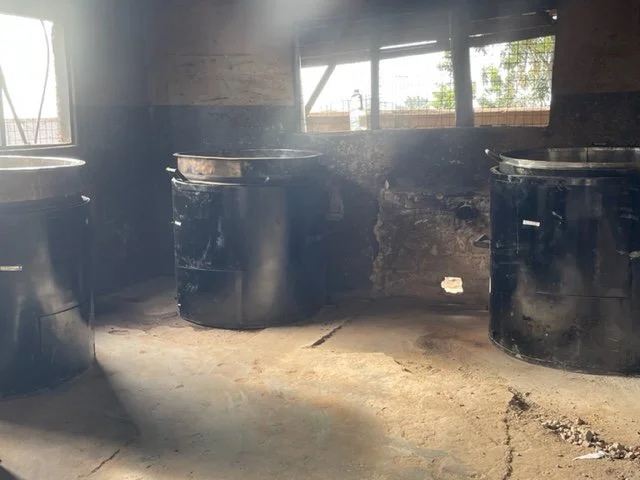For the past three weeks we have been busy testing a cohort of twelve institutional improved cook stoves (IICS) of 30 litres capacity, that have been in operation in different schools in Kampala since 2016. This exercise is part of our carbon financing obligations with the Gold Standard, and we perform the international Water Boiling Test protocol to ensure the thermal efficiency of the IICS is above 20%.
We are pleased to confirm, as these tests results have shown for the past six years, that the thermal efficiency is above 27%, which ensures all 92 participating schools are saving at least 60% of the firewood consumed for preparing their school meals, when compared to their past 3-stone fires.
We have performed all tests during the month of August, as schools were closed for holidays, to ensure we do not disrupt their cooking activities.
































































